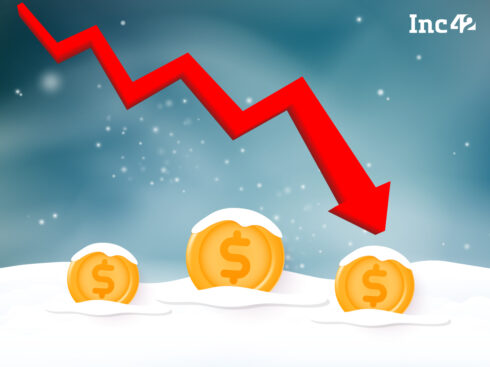
In June 2016, I began to speak with venture capital groups about financing for my company. We were considering fundraising in 2017 and wanted to connect with potential investors early. Interestingly, almost all the VCs posed a question they had never asked before:
“How soon can you become profitable?”
That question is more confusing than it might appear. On the one hand, tech entrepreneurs know that businesses are supposed to generate more money than they spend. When a business sustains itself, the founders don’t get trapped between equity dilution and survival, and the investors are happy as well. Profit is power.
On the other hand, audacious ideas require heavy spending. Not long ago, investors not only expected but encouraged founders to spend aggressively on marketing, talent, innovation, market expansion and everything else.
What Changed?
Fear changed.
Fear of a bubble. Fear from the U.S. election. Fear of saturated software verticals. Fear that acquisitions have slowed. Fear that no matter how innovative a startup is, it may neither make a single dollar nor get acquired. The fear of failure has begun to outweigh hopes of finding the next ‘unicorn.’
We see this fear in the early-stage venture capital data. In Q3 2016, total venture deals were down 36 percent from Q3 2015, and the total funding fell 26 percent to $10.6 billion according to the latest PwC MoneyTree™ Report. That total is the lowest since Q3 2014 and a 58 percent drop off compared to Q2 2016.
Here’s the key: Seed-, early- and expansion-stage deals declined from the last quarter, but later-stage investments defied the trend. In Q2, there were 187 later-stage deals worth $2.43 billion, but Q3 saw 190 deals worth $3.47 billion. In other words, investors poured an extra $1 billion into roughly the same number of later-stage deals.
Essentially, investors wanted a safe bet, and later-stage startups calmed their fears. At earlier stages, a “safe” startup is one that is profitable – or one that could be shortly. I’d guess that 90 percent of tech startups are not built that way. More spending equals more growth, so most startups spend, spend, spend.
The trouble with tech is that the levels of profitability don’t resemble those in other industries. Because the product can change a lot, it does. Tech companies develop changes continuously and, depending on their philosophy, might deploy changes multiple times a day. A change to the product can win new customers, chase away existing customers or, frustratingly, make no difference at all.
For some perspective, compare a tech company to a cereal maker like Kellogg’s. They don’t change the cereal recipe or packaging multiple times daily. The company knows the cost of ingredients, production, packaging and so forth. They know how many units they need to sell to turn a profit. When they change a product, the process is slow and deliberate. Kellogg’s can make small shifts that save millions or make big shifts that create billions.
With software, you can’t say, “If we just spend this much on development and infrastructure, then we’ll be profitable.” It doesn’t work that way.
So the immediate effect of the funding crunch is to reinforce fear and slow down innovation. When investors say, “How soon can you become profitable?” they’re not asking about your product roadmap. The subtext of the profitability question is, “If you cut enough staff and downsized your office, would you be profitable?”
For now, investors find comfort in this subsistence entrepreneurship. It may protect the venture ecosystem from bubbling, but it won’t produce as many disruptive startups. “How soon can you become profitable?” would have killed Amazon, Tesla and many other iconic companies.
Investors are in a position of relative power, and startups have themselves a Catch-22. Getting profitable could get you funded – or save you from needing capital – but it could also stunt your growth potential enormously. Going into the red could produce that breakthrough innovation you dream of, but if it doesn’t, don’t expect investors to bail you out.
A version of this post was originally published on Forbes.
About The Author
Jayna Cooke is CEO and Partner at EVENTup, a platform for showcasing venues to a national audience.
The Young Entrepreneur Council (YEC) is an invite-only organisation comprising the world’s most promising young entrepreneurs. In partnership with Citi, YEC recently launched BusinessCollective, a free virtual mentorship programme that helps millions of entrepreneurs start and grow businesses.


























